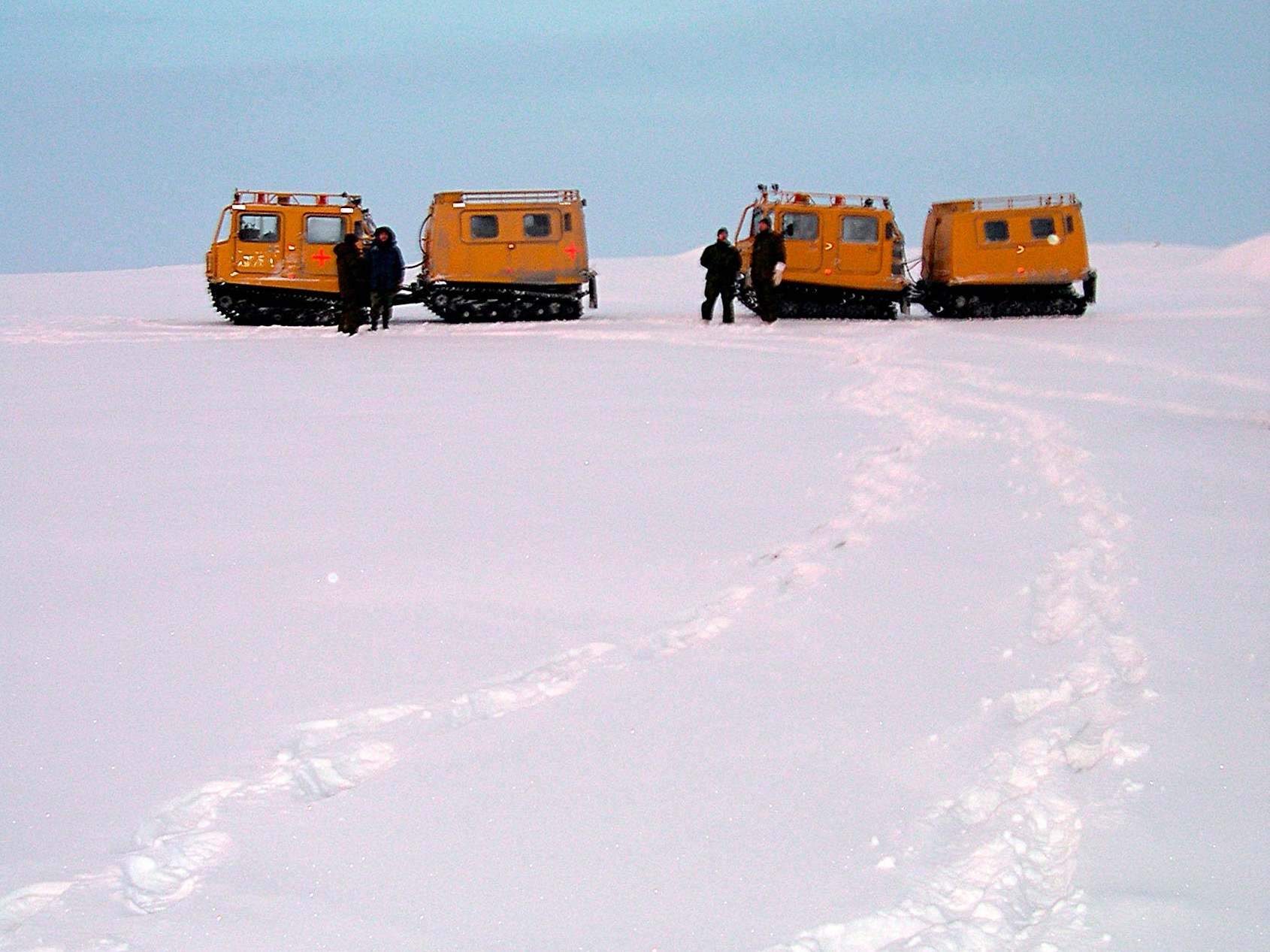‘Quite phenomenal’: Arctic heatwave hits most northerly settlement in world
‘It’s an absolute record, we’ve never seen that before,’ says Canadian meteorologist

Your support helps us to tell the story
From reproductive rights to climate change to Big Tech, The Independent is on the ground when the story is developing. Whether it's investigating the financials of Elon Musk's pro-Trump PAC or producing our latest documentary, 'The A Word', which shines a light on the American women fighting for reproductive rights, we know how important it is to parse out the facts from the messaging.
At such a critical moment in US history, we need reporters on the ground. Your donation allows us to keep sending journalists to speak to both sides of the story.
The Independent is trusted by Americans across the entire political spectrum. And unlike many other quality news outlets, we choose not to lock Americans out of our reporting and analysis with paywalls. We believe quality journalism should be available to everyone, paid for by those who can afford it.
Your support makes all the difference.The planet’s most northerly human settlement is in the midst of an “unprecedented” heatwave as parts of the Arctic endure one of their hottest summers on record.
Canada’s weather agency confirmed on Tuesday that temperatures in Alert, Nunavut, peaked at 21C at the weekend – far exceeding the July average for the area of around 5C.
Overnight temperatures on Sunday remained above 15C; again, well in excess of nighttime lows that usually hover around freezing in a settlement that lies less than 900km from the North Pole.
The previous temperature record for the town, of 20C, was set in 1956.
In a further alarm bell for the region, the mercury climbed above 20C for a second day on Monday – the first time Alert’s climate station has recorded two consecutive days of 20C-plus temperatures in its history.
Alert is the northernmost permanently inhabited place in the world – with a population numbering less than 100 – and is far to the north of the Arctic Circle.
David Phillips, Environment Canada’s chief climatologist, said the weather in the far north of Canada was “quite spectacular” and “unprecedented”.
He told the Canadian Broadcasting Corporation: “It’s nothing that you would have ever seen.”
Armel Castellan, a meteorologist at the Canadian environment ministry, told AFP the extreme weather was “quite phenomenal”.
“It’s an absolute record, we’ve never seen that before,” he said.
Unusually, Victoria, 4,000km south of Alert, enjoyed cooler temperatures of 20.6C while the Arctic settlement baked.
Tyler Hamilton, a meteorologist at the Weather Network, said: “These two communities have a staggering amount of lines of latitude in between them, with the city of Victoria situated at 48°N, while Alert is plopped north of 82°N.
“This is in fact the first time a temperature warmer than 20C has been measured north of 80° on the planet.”
Alert’s heatwave comes as nearby Alaska saw its own record temperatures earlier this month.
Anchorage, the state’s largest city, sweltered in 32C on 4 July – shattering the seasonal high of around 24C.
Other local records were set across southern Alaska and came after five weeks of above-average temperatures in the outlying US state.
Rick Thoman, a climate specialist at the University of Alaska, said at the time that exceptionally warm weather events would only become more frequent because of the loss of sea ice and warming in the Arctic Ocean.
“These kinds of extreme weather events become much more likely in a warming world,” he said.
“Surface temperatures are above normal everywhere around Alaska. The entire Gulf of Alaska, in the Bering Sea, in the Chukchi Sea south of the ice edge, exceptionally warm waters, warmest on record, and of course record-low sea ice extent for this time of year off the north and northwest coasts of the state.”
Research published at the start of the year found Arctic summers may be hotter than they have been for 115,000 years.
Evidence that this century is the warmest the region has faced for millennia came from plants collected in the remote wilderness of Baffin Island.
As glaciers melt in the Canadian Arctic, landscapes are emerging that have not been ice-free for more than 40,000 years.
“The Arctic is currently warming two to three times faster than the rest of the globe,” said Simon Pendleton, a PhD student at the University of Colorado at Boulder who led the research.
Join our commenting forum
Join thought-provoking conversations, follow other Independent readers and see their replies
Comments